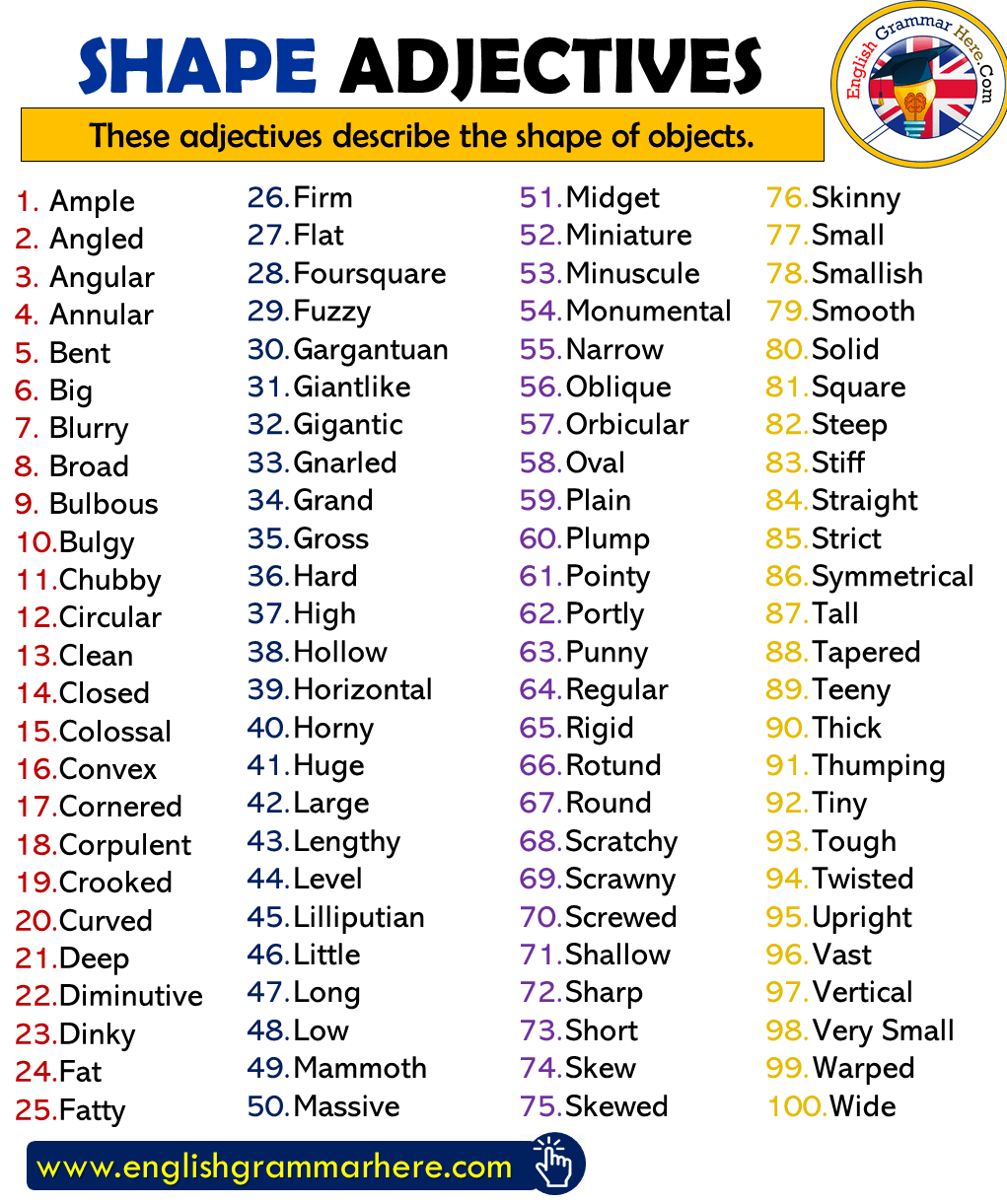
Adjectives Starting with e. Adjectives Starting with d. Adjectives Starting with c. Adjectives Starting with b. Below is the main list of adjectives: Adjectives Starting with a. We have organized all of the adjectives alphabetically, starting from A to Z.
They may name qualities of all kinds: huge, red, angry, tremendous, unique, rare, etc. Adjectives Starting with h.Adjectives describe or modifythat is, they limit or restrict the meaning ofnouns and pronouns. Adjectives Starting with g.

(As you work through, you may find that some of these naturally combine. They don't change the meaning of a query and are used when writing content to structure sentences properly.Use the following list of common personal values to help you get started and aim for about 10 top values. 150 Most Common Adjective List.These are known as stop words and they are typically articles, prepositions, conjunctions, or pronouns. 10 Examples of Adjective List in English 1.Charming. Finding these adjectives can be trickyAdjectives are descriptive words that modify nouns.
But remove it, and the contextual meaning of the query doesn't change.However, if you write “Restaurants Brooklyn” in your content, it reads poorly without them. For example: Suzy threw the boomerang and it came back to her.Want to see an example? Take a look at these two search queries:In this case, "in" is the stop word. They are used in the place of a noun to avoid it having to be named twice. Pronouns are some of the most useful words in the English language.
The meaning of flights to London is likely to be lost if the word to is stopped out."— Dawn Anderson February 8, 2021Generally speaking, search engines use stop words to better understand the context of the search as they can greatly impact what is represented to users. Below, we'll look at how you should and shouldn't use stop words when optimizing a site.Here's what Bill Slawski has to say about stop words and how Google (may) treat them:More from that piece: "The phrase query ``President of the United States'', which contains two stop words, is more precise than President AND ``United States''. These got ignored both in search queries and in search results.These words have nothing to do with the content at a contextual level, and removing them doesn’t change the overall meaning of a text.However, that doesn't mean you should remove stop words from your content. Words such as the, in, or a.The concept of stop words was first coined by Hans Peter Luhn, one of the pioneers in information retrieval.But how much do you need to worry about stop words as an SEO? And how should the fact that search engines ignore these change the way you approach content creation and optimization? Does Google Ignore Stop Words?Stop words used to be used by search engines to speed up crawling and indexing to save storage space. What Are Stop Words in SEO?As already discussed, stop words are common words, such as articles, prepositions, conjunctions, and pronouns, that search engines may ignore.
However, in our opinion, you should keep them in place.Title tags aren't just used by search engines. Should You Use Stop Words in Your Page Titles and Headings?There are plenty of headings and title tags in the SERP that are missing stop words. Google's view is that they recommend keeping a simple URL structure. We discuss shortening or optimizing where possible to keep URLs easy to read and meaningful.However, if you must shorten a lengthy URL, you can consider removing stop words if they don't impact the context. This can result in lengthy URLs.You can check out our guide to creating SEO-friendly URLs. Should You Use Stop Words in Your Page URLs?Stop words in URLs have been discussed for years in the SEO community, but you shouldn't worry about it too much.If your site runs on WordPress and you use the Yoast SEO plugin, you probably remember seeing recommendations to remove stop words from your page URL.It’s not uncommon for a CMS or webmaster to use the page heading or page title to create a page’s slug.
A Comprehensive A-Z List of 175+ Stop WordsThere's no single universal list of stop words, but we've pulled together a comprehensive list of more than 175.Use it as a reference point when optimizing your site and understanding how search engines may handle these words. By understanding what they are and how search engines process them, you're better equipped to make the right decisions around using them.Ignore the advice to remove them from titles and headings as this can harm user experience, but consider excluding them from your page URLs if you need to shorten them and it doesn't change the context.Always put your users first, and you'll usually find that this is also the best thing for search engines, too. Stop Words are Important for User ExperienceThe reality is that stop words aren't something that most marketers need to worry about. Should You Use Stop Words in Your Content?You should never remove stop words from your body content this would make it totally unreadable. You must put your users first and never sacrifice their experience to how you perceive a search engine may view your content. It would read as "Best Shows Movies Streaming HBO Max - Variety." Removing the stop words here makes it read awkwardly and it's obvious that a part of the title is missing.When an element is seen by users and used to decide whether to click on (or stay on) your page, you should always prioritize user experience.


 0 kommentar(er)
0 kommentar(er)
